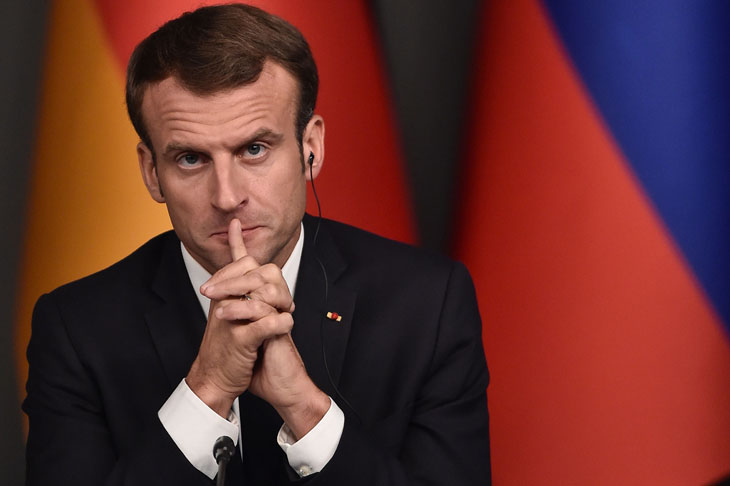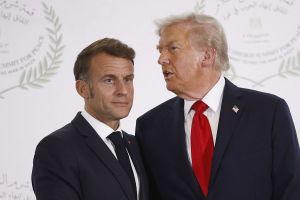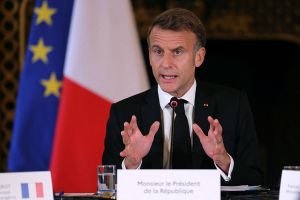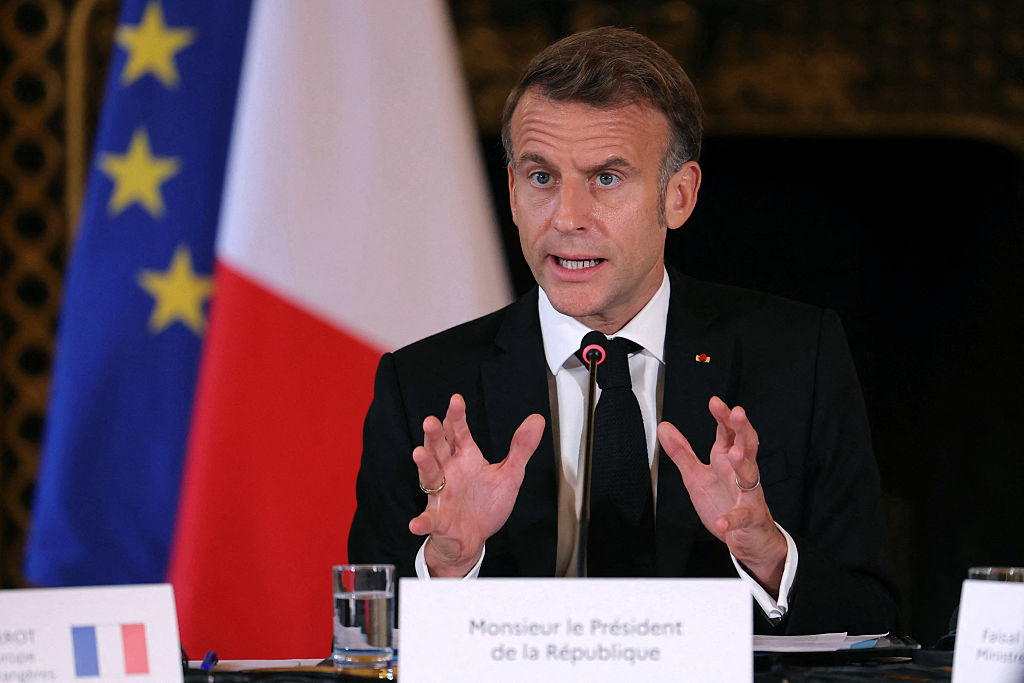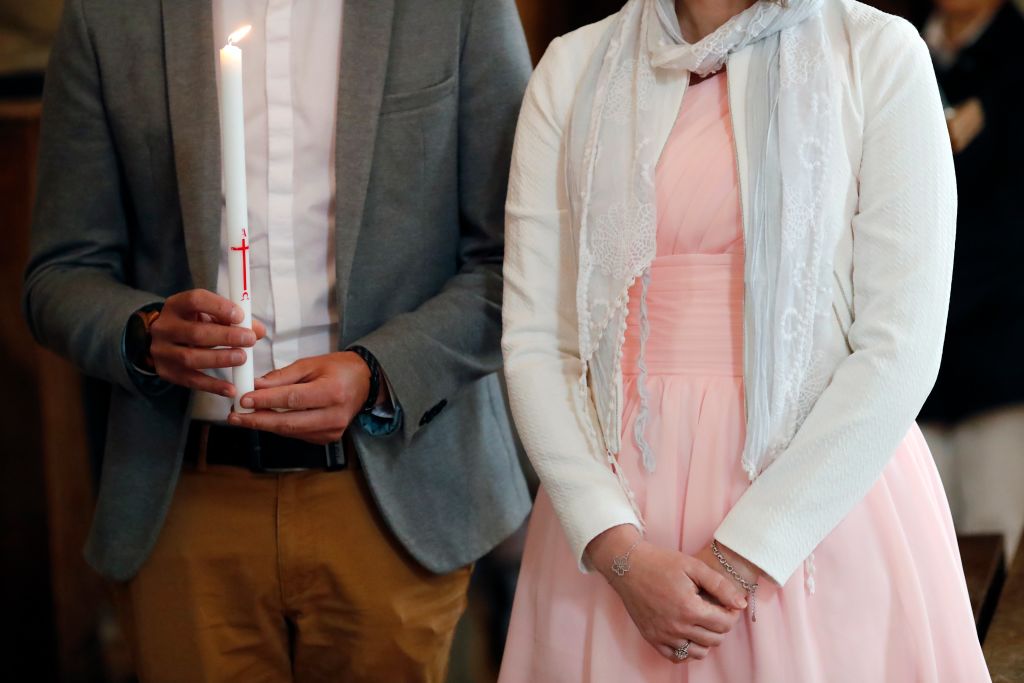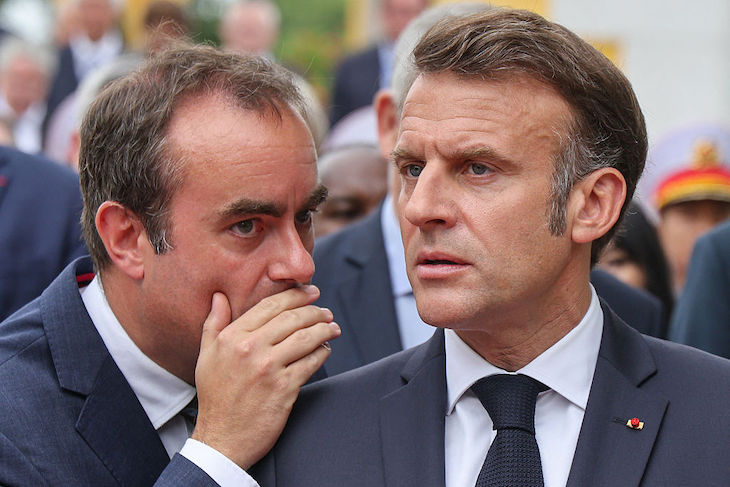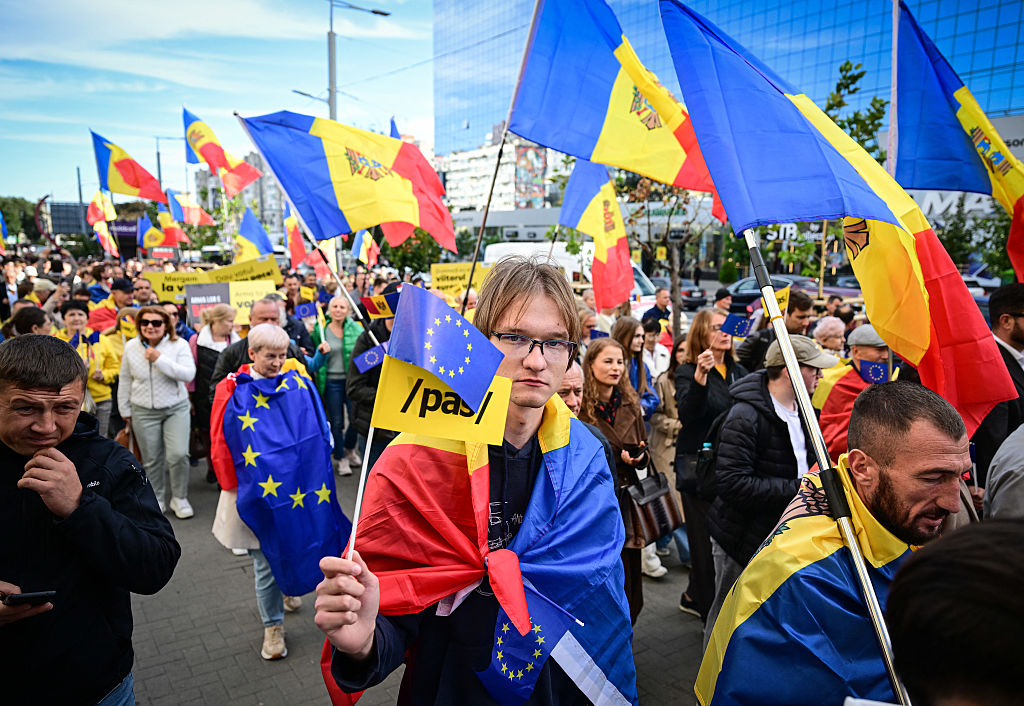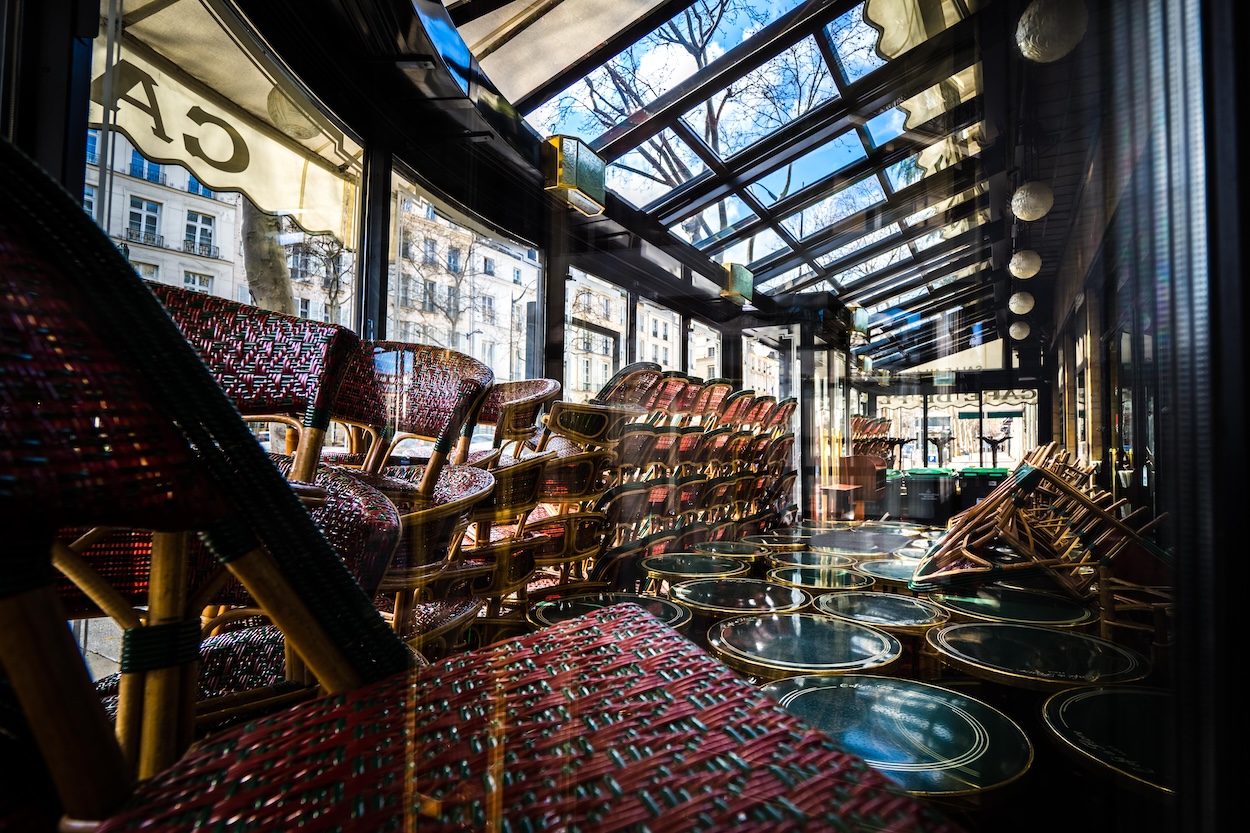Emmanuel Macron was elated when France won the World Cup in July. The photograph of him leaping out of his seat at the Moscow stadium showed a leader at the peak of his power. Or so he thought.
Ever since then, he has been bumping back to earth. Last week, the French President took the unusual step of retiring to Honfleur for four days’ rest and recuperation. ‘His face has changed, he is marked by the weight of power,’ confided one of his team; another expressed concern about the President’s weight loss.
Part of his deterioration is self-inflicted. Macron likes to boast that he gets by on four hours of sleep, and his texts to ministers in the early hours are legendary. In the 18 months since he came to power, he has made 170 official visits in France and 66 trips overseas.
Caught off-guard by the flurry of speculation concerning his health, Macron emerged from his retreat to tell locals that ‘All is well, so don’t worry.’ ‘I’m not slowing down,’ he added. But this appearance hasn’t stopped the press gossiping about his drawn features and ‘first gray hairs’.
Macron’s weariness isn’t just down to his workload. Since July he’s suffered one setback after another. Some have been serious, others less so, but together they’ve eroded his aura of invincibility. Most surprising of all, given his poise in the first few months of his presidency, many of the setbacks have been of his own making.
None more so than the Benalla affair, the scandal that erupted three days after the World Cup final. Footage was broadcast of the President’s bodyguard, Alexandre Benalla, beating up a protester during a May Day parade. The public were appalled, not just at Benalla, but at Macron’s advisers who tried to lie their way out of the crisis. In doing so they stripped Macron of his moral authority. He was no longer the new president for a new France; he was just another president who abused his position and then tried to cover up his misdemeanors.
How could Macron have been so stupid over Benalla? Daniel Cohn-Bendit, the former Euro MP who is in Macron’s entourage, has said that the President and his wife liked and trusted Benalla. He was an organizer, a confidante and someone who could lighten the mood with a wisecrack. They didn’t want to lose him and that misplaced loyalty clouded Macron’s judgment. Perhaps, too, there was arrogance involved. The comparisons with Jupiter and the Sun King, the invitation to the White House, the sense that he was emerging as the strongman of Europe. Had he begun to believe the hype?
Macron spent his first year in power hectoring and lecturing people, and his leadership style alienated some of his ministers. First to resign was Nicolas Hulot, the popular environment minister, who announced his decision in a live radio interview in August, citing his frustration with government policy. Others followed: Laura Flessel, the sports minister, and Gérard Collomb, the experienced minister of the interior, who told journalists that there was a ‘lack of humility’ in the President’s administration, warning that if he doesn’t change ‘he’ll end up isolated’.
That is now happening. Not just within his own administration but also within the EU, where Macron has few friends among the other 27 leaders. Since coming to power, he has insulted Poland, Hungary and Italy. His cherished ambition of forging a new alliance with Germany is dying alongside Angela Merkel’s political career. Fourteen months after outlining his vision of a ‘profound transformation’ of the EU, Macron increasingly looks like the only leader who still believes in the Brussels project.
Last week he used a newspaper interview to warn of the spread of a nationalist ‘leprosy’ across Europe. Macron likes the ‘leprosy’ metaphor; he used it in June when making a veiled reference to Matteo Salvini, the Italian interior minister, who is seen in Paris as a dangerous populist because of his hardline approach to mass immigration.
Macron, by contrast, is the progressive — or so he would have us believe. In truth, he’s making little progress in his own country. In late September, his approval rating dropped to 29 percent, with ‘arrogant’ and ‘superficial’ the words most commonly used by those polled to describe their president.
Macron came to office with a promise to reform France. He eased many restrictive labour laws, abolished much of the punitive wealth tax and modernized the state railway operator. But the momentum he gained has been offset by a slowdown in household spending as well as rising fuel prices. Macron is hoping he can pacify people with tax cuts. These will take effect in the next few months and are supposed to boost family purchasing power, a priority for many French voters.
But tax cuts can help only so far. On the other issues that concern voters, Macron has been impotent. The footage that went viral last month of a 15-year-old boy holding an imitation gun to the head of a teacher in a Paris school shocked France. Violence is so endemic in French schools that education minister Jean-Michel Blanquer is considering sending in the police. Macron has done very little to tackle the problems surrounding immigration, radical Islam or inner-city violence. The arrest this week of an alleged far-right terror cell, said to be in the early stages of plotting an attack on the President, is disturbing evidence of the fury some in France now feel at the state of their country.
He is at least fortunate that the center-right Républicains and the Socialist party remain in ruins 18 months after their collapse in the presidential election. Meanwhile the far-left leader of La France Insoumise, Jean-Luc Mélenchon, has run out of impetus, which leaves only Marine Le Pen to capitalize on the President’s troubles. A poll this week put her National Rally party ahead for next year’s European elections, but it is hard to imagine her running in the 2022 presidential election after her disastrous performance last year. It is more likely she will step aside to make way for her niece, Marion Maréchal, who seems more likely than her aunt to unite the right under one banner.
Macron has a respite this week from his domestic strife as he hosts 60 world leaders to commemorate the centenary of the end of the first world war. Merkel will be among them and the German Chancellor and the French President will convene in Compiègne, where the Armistice was agreed. It will be a somber occasion, not just for its historical significance, but because of what the pair represent: the worn-out leaders of two countries whose people are angry and divided. It doesn’t bode well for the future of Europe.
This article was originally published in The Spectator magazine.



